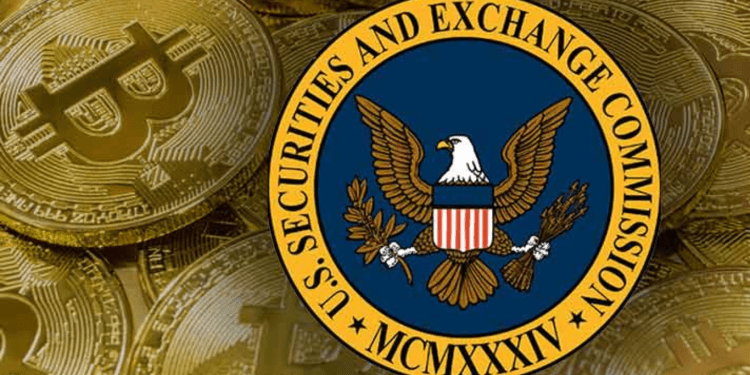Chair of the Securities and Exchange Commission (“SEC”) Gary Gensler stated that he would support Congress if it were to delegate more power to the Commodity Futures Trading Commission (“CFTC”) to regulate certain crypto assets such as Bitcoin. This move would not interfere with the SEC’s current regulatory authority and jurisdiction. Only bills have been introduced in Congress, but no formal action has been taken.
The SEC Chairman’s Views
At an industry conference, SEC Chairman Gary Gensler remarked that he would support Congress’s decision to delegate more authority to the CFTC to handle specific crypto issues such as those about Bitcoin. He would look forward to working with Congress to vest such power over “nonsecurity tokens” and “the related intermediaries” in the CFTC.
However, Chairman Gensler had declared and made clear that this power given to the CFTC will in no circumstances interfere with the SEC’s authority:
Let’s ensure that we don’t inadvertently undermine securities laws. We’ve got a $100 trillion capital market. Crypto is less than $1 trillion worldwide. But we don’t want that to undermine somehow what we do elsewhere.
In other words, the CFTC can regulate this commodity, a digital asset-like industry—including Bitcoin—so long as it does not interfere with or reduce the SEC’s powers. For instance, Gensler mentioned that the United States has a “$100 trillion capital market,” but the crypto market is “less than “$1 trillion worldwide.”
Further, according to Chairman Gensler, crypto exchanges, such as Coinbase Global, Inc., should register with the Commission as a national securities exchange, similar to NASDAQ or the New York Stock Exchange. CFTC regulation would not prevent the SEC’s position in this manner regarding certain online crypto exchanges.
The Public Reaction
Overall, the SEC and many individuals are on board, giving the CFTC more power. The reason for this advocacy is a little nuanced. For instance, holders of cryptocurrency often assert that the SEC and its rules are “unsuitable for the nascent industry” because there is a “massive difference[s]” between cryptocurrencies and traditional assets regulated by the SEC.
Brad Garlinghouse, the CEO and founder of Ripple—Ripple of which is currently in the middle of a heated lawsuit with the SEC over whether Ripple’s token, XRP, is security—weighed in on this issue in a Bloomberg interview:
Time and Time again, you find that the CFTC is the most appropriate regulator for this industry, and I think you will find that uniformity across the whole industry.
There has also been significant discussion and support from cryptocurrency lobbyists. Lobbyists recently grasped this idea and began urging lawmakers and regulators that the CFTC is the appropriate party for asserting primary jurisdiction over the crypto industry—not the SEC.
Further, many lobbyists agree that traditional stocks and bonds differ entirely from cryptocurrencies. They are structured differently and have other intended users altogether. Therefore, the SEC’s rules for traditional securities do not nicely apply to cryptocurrencies.
Despite this, substantial confusion and controversy remain. The SEC versus CFTC debate regarding which agency is more apt to handle the crypto industry and who should regulate what continues to rage on.
Current Progress to Vest Additional Authority with the CFTC
Several bills have already been introduced in the House and the Senate that aim to grant such power to the CFTC to oversee certain aspects of the crypto market.
One example is the Digital Commodities Consumer Protection Act of 2022, which would require all digital commodity platforms to register with the SEC, trading facilities, brokers and dealers, and custodians. This bill has only been introduced as of mid-August and has not been passed in either the House or the Senate.
In addition to asking for clarity from Congress, CFTC Chairman Rostin Behnam has asked Congress to enact a law that would give the CFTC the authority to regulate cash markets in this respect and provide it with funding for other areas of potential oversight.
Conclusion
The SEC favors granting the CFTC more authority to oversee certain crypto assets—including Bitcoin. This would allow the CFTC to regulate the crypto sphere more aggressively. In addition to supporting from the SEC and the public to give increased authority to the CFTC—and not the SEC in these respects—bills have also been introduced to make this position official.














